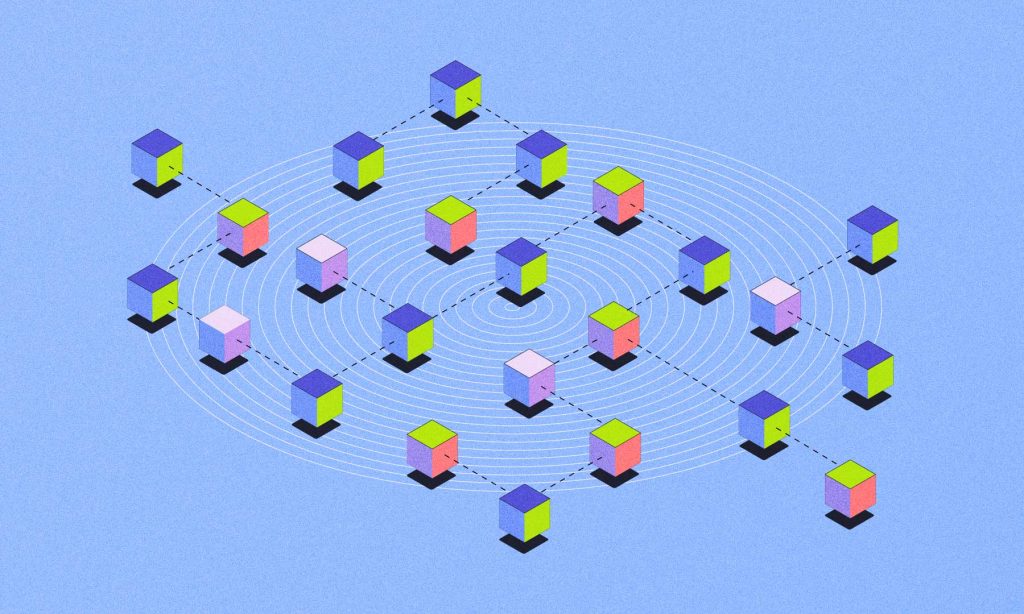What is a decentralized exchange?
Decentralized exchanges (DEX) are crypto exchanges that run on trustless and decentralized peer-to-peer networks. DEXs enable direct peer-to-peer transactions using smart contracts that automatically execute deals, eliminating the need for middlemen. DEXs also offer enhanced privacy and anonymity since users don’t have to reveal their identity or other personal information.
How does a decentralized exchange work?
Decentralized exchanges, which use blockchain-based contracts, allow the exchange of assets, replacing intermediaries, brokers, banks, payment processors, and other entities.
DEXs offer clarity on the transfer of funds and the processes supporting the exchange. In typical monetary operations, mediators provide little insight into transactions. DEXs reduce counterparty risk and lessen systemic centralization problems in the decentralized cryptosystem.
The best 5 decentralized exchanges
Here are the five top decentralized exchanges.
Defi Swap
Defi Swap is a decentralized exchange (DEX) based on the Ethereum blockchain that enables customers to swap crypto without a central authority. It utilizes smart contracts, which instantly perform transactions depending on predetermined rules. Defi Swap allows users to swap various tokens with minimal fees and good liquidity. By staking their tokens, users may also receive incentives for supplying liquidity to the exchange. Defi Swap is a component of the Defi ecosystem, which aspires to democratize access to financial products & provide more safe and transparent alternatives to conventional financing.
Uniswap
Uniswap is the original Decentralized Exchange Protocol or DEX. It is an Ethereum-based blockchain-based token generation, trading, and exchange platform. Unlike users of centralized exchanges, Uniswap users never have to worry about hacking or losing control of their private keys. Besides, Uniswap does not charge any listing fees for tokens on its exchange.
Uniswap allows users to transact anonymously as it does not require them to create a user account or divulge personal details.
Uniswap is also an open-source prototyping protocol to aid the construction of decentralized marketplaces. It is powered by either the “Exchange” or “Factory” smart contract. With this proof-of-stake oracle, users can rationalize their gas price and use. V3, the most recent or widely used version, has been utilized for 15.5 million payments and 2.8 million gas transactions.
Pancakeswap
Pancake Swap is your only option for a decentralized exchange that utilizes the Binance Smart Chain. Participants of the Pancakeswap platform may, among other things, engage in token exchanges, staking CAKE in Syrup Pools, Initial Farm Offerings (IFOs), continuous trading, and buying and selling NFTs through the NFT marketplace. Prominent blockchain security firms, such as Certik and Slowmist have validated this open-source system.
On PancakeSwap, users that provide liquidity get their rewards in the native token CAKE. The high liquidity of traded commodities and low transaction costs have contributed significantly to the platform’s expansion. PancakeSwap’s user interface is coherent, minimalistic, and easy.
Curve
The focus of Curve Finance, a decentralized crypto exchange, is stablecoins. The Curve system uses automated market maker (AMM) technology to keep its clients’ fees and slippage costs low. Stable currencies include DAI, USDT, USDC, and TUSD.
Users may also access the CRV token used by Curve. Users get their rewards in this currency for participating in the protocol’s judgment process, while liquidity providers get compensation for their services to the platform. Crypto pools, accessible on Curve, let users pool their resources for trading at market prices. These pools may have their fees changed from 0.04% and 0.4%.
1inch
1inch stands out among decentralized exchanges. It is a DEX aggregator that calculates the best crypto prices across various decentralized exchanges and helps dealers minimize slippage. Slippage happens when low trading volume causes a commodity’s purchase or sale price to exceed expectations. 1inch has 188 liquidity sources from 7 blockchains, 1.6 million users, and payments totaling $134 million. 1inch utilizes Ethereum tokens to determine the most cost-effective exchange routes.
Conclusion
Decentralized exchanges are crypto exchanges that run on a decentralized network and enable customers to trade freely without the need for middlemen. However, users must be aware of the risks, including lack of liquidity or security flaws. Despite these headwinds, DEXs will likely soar in popularity as more consumers seek the advantages of decentralized trade.
FAQs
Which exchanges are decentralized?
Defi Swap, Uniswap, PancakeSwap, 1inch Exchange, and Curve are among the most well-known DEXs. Kyber Network, Bancor, Ox, and AirSwap are also noteworthy. Users should carefully analyze their alternatives according to their requirements and tastes since each DEX has distinct features and advantages.
What are the best decentralized exchanges?
Some of the most popular and highly regarded decentralized exchanges (DEXs) are Defi Swap, Uniswap, PancakeSwap, Curve, and 1inch Exchange
Is it legal to use a decentralized exchange?
The legality of utilizing a decentralized exchange (DEX) is contingent on the rules and regulations of the user’s nation or territory. Some countries regulate DEXs, while some forbid them to operate.
Do you have to pay taxes on a decentralized exchange?
With DEX, the user needs to self-report his/her taxes and deposit the TDS. You need to pay taxes on all types of crypto transactions in India, on both DEX and centralized exchanges.








